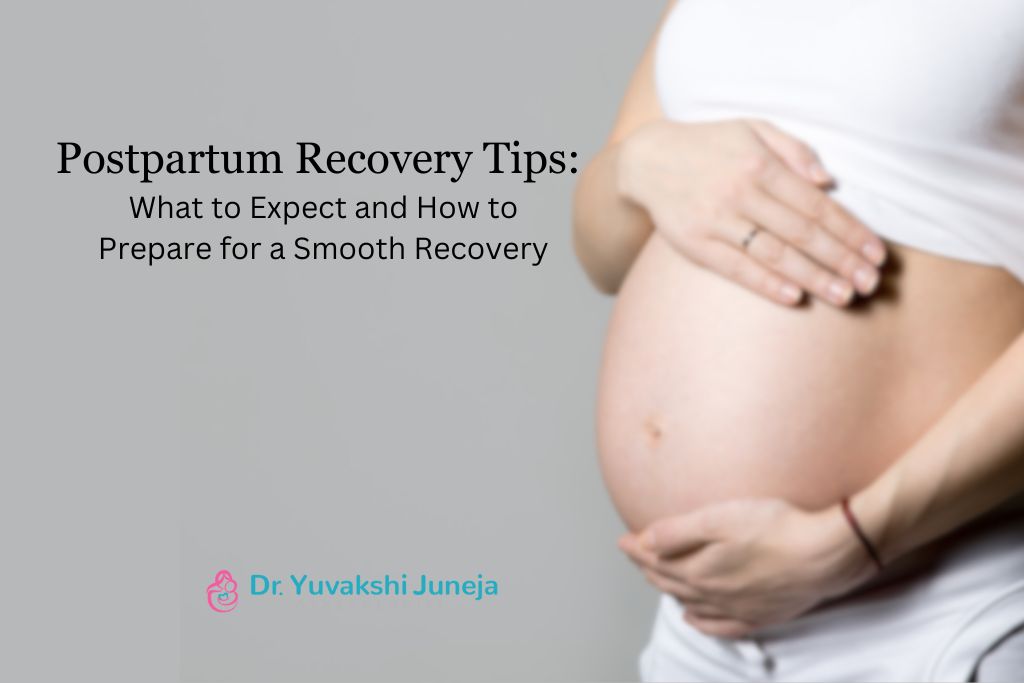Postpartum Recovery Tips: What to Expect and How to Prepare for a Smooth Recovery

The days following childbirth are filled with profound changes and adaptations, both physically and emotionally. While welcoming a new life into the world is incredibly joyous, it also requires passionate care and patience as your body heals. Understanding what lies ahead can empower you to navigate this period with reassuring clarity and confidence. This guide will share practical postpartum recovery tips to support you as you embrace this transformative experience.
Understanding Postpartum Recovery
Postpartum recovery is the period after childbirth where a mother’s body heals and adjusts to the psycho-biological changes that follow. Whether you’ve had a vaginal birth or a cesarean section, the recovery process mandates compassionate attention. Postpartum care for moms involves more than just addressing physical needs; it encompasses emotional and physical healing.
The period following childbirth, known as the fourth trimester, spans the first six weeks after delivery. During this period, your body undergoes numerous changes including the healing of wounds, the shrinking of the uterus, hormonal shifts, and adjusting to new sleep patterns and breastfeeding routines. Recognizing these changes helps you approach this transitional phase with a positive outlook.
Essential Postpartum Recovery Tips

1. Rest and Sleep
One of the most vital postpartum recovery tips is to prioritize rest. Your body needs time to heal, and getting enough sleep is a requisite for this process. Aim for naps when your baby sleeps, and don’t hesitate to ask for help from family or friends to take care of your auxiliary responsibilities. This support can go a long way in managing other aspects of your life making your recovery a little smoother.
2. Nutrition and Hydration
Proper nutrition is essential for healing after childbirth. Preparing fresh, nutritious meals can support your recovery while you focus on taking care of your baby. Opt for foods rich in iron, calcium, and protein. Incorporate ingredients like ghee, turmeric, lentils, and seasonal vegetables, as well as traditional postpartum foods such as gond ke laddoo(a sweet made from edible gum) and panchmel dal (a mixed lentil dish), which are known for their healing properties. Keeping these ingredients on hand and preparing them as needed can simplify meal preparation and ensure you receive the nourishment you need.
3. Physical Activity
Light exercises like walking can help improve circulation and enhance your well-being. Gentle movements, such as pelvic floor exercises, can be beneficial in regaining muscle strength and preventing complications like incontinence. However, consult your healthcare provider before starting any exercise routine, especially if you’re dealing with cesarean section recovery.
Special Considerations for C-Section Recovery
If you’ve undergone a cesarean section, your recovery will require some additional care. Postpartum care after a C-section involves careful attention to the incision site keeping it clean and dry, avoiding heavy lifting, and wearing loose clothing to prevent irritation. It’s also important to monitor the incision site for signs of infection, such as redness, swelling, or unusual discharge, and to seek medical advice if any of these symptoms occur. The recovery process may be slightly longer, so patience and self-compassion are key.
How to Prepare for a Smooth Recovery
1. Embrace a Supportive Network
During your postpartum recovery, having a reliable network of family and friends can make all the difference. Communicate your needs clearly to your loved ones, and go right ahead to seek additional support if needed. You can also consider connecting with local support groups or online communities for advice, encouragement and shared experiences.
2. Create a Comfortable Environment
Organizing your living space can greatly enhance your comfort during recovery. Set up a cozy area with all the essentials such as diapers, wipes, feeding supplies, and your personal care items within easy reach. This setup will help you manage daily tasks with greater ease, allowing you to rest and recuperate effectively.
3. Prioritize Emotional Well-Being
Emotional well-being is a significant part of postpartum recovery. Many new mothers experience the “baby blues,” but if feelings of sadness persist, it’s important to seek support. Understanding the crucial role of mental health during pregnancy can provide insights into apperceiving postpartum emotions. Postpartum depression is a serious condition that requires attention and care, so it’s essential to speak to a healthcare provider if you’re struggling with your mental health.
4. Prepare for Self-Care and Personal Time
Taking time for self-care is essential during your recovery. Schedule short periods throughout the day for activities that relax and rejuvenate you, such as reading, taking a warm bath, or practicing mindfulness. It’s important to balance the demands of caring for your baby with taking care of your own needs, so ensure you carve out moments for activities that bring you relaxation. Make time for yourself to recharge, even if it’s just for a few minutes.
For additional tips on maintaining well-being, check out these self-care tips during pregnancy which can be adapted for postpartum recovery
Conclusion
Postpartum recovery is a unique journey for every mother, and being prepared can make all the difference. It’s perfectly normal to take some time for yourself and to feel differently about the glorified aspects of motherhood. Acknowledging that postpartum recovery is a crucial part of the healing process can help you embrace the journey with better understanding and acceptance. Allow yourself the space to navigate these feelings and experiences, knowing that they are all part of becoming a mother.
